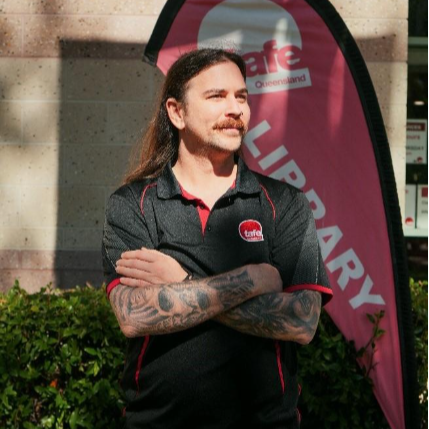
The Coldest Commute: A Plumbing Job in Antarctica
Smith packed his tools, thermal gear and sense of adventure for a six-month placement at the Davis Research Station, one of Australia’s three permanent research bases on the icy continent.
For most plumbers, the daily grind is juggling multiple jobs and tight schedules, unpredictable weather and traffic conditions and the occasional customer conflict. But for Dylan Smith, a plumbing educational team leader, his most recent “job site” was a little different — the coldest place on the planet, Antarctica.
In 2023, Smith packed his tools, thermal gear and sense of adventure for a six-month placement at the Davis Research Station, one of Australia’s three permanent research bases on the icy continent. It was a rare opportunity to test his plumbing skills in the most remote and extreme environment on Earth.

From Brisbane to the Bottom of the World
Smith’s Antarctic escapade was ten years in the making. He remembered he was fresh out of his apprenticeship when he first filled out the application form to go.
“I was just trying to answer some of the questions, and it became quite apparent quickly that I was not remotely qualified or had the skillset to do this job,” he said with a laugh. “So, I ended up putting it on the backburner and focused on being a tradesman. Five or six years later, I revisited it, but I still ended up not submitting my application then. I couldn’t commit.”
During this time, Smith worked for a couple of people before eventually starting his own business. It was a common path for many tradespeople and plumbers, but it soon became clear that he wanted to go a different direction. He ended up closing his plumbing business and finding his way to teaching at a training college.
“I shut down my business because I was quite young, and it’s a lot of work. Blair, who I used to work with and is one of the teachers at the training college, would talk about how awesome it was working with students,” said Smith. “It’s quite satisfying, you know, when you get those groups that pass. It’s the same as taking on an apprentice when you’re on the tools. It’s investing in that next generation of plumbers.”
While Smith enjoyed his new career in education, Antarctica stayed on his mind. In 2022, he submitted the application, progressed through all the technical, medical and psychological tests, and boarded the boat to Antarctica.

A Life-Changing Six Months
Among the 50-something people who were stationed at Davis Station, eight of those were plumbers. Smith was part of the maintenance crew who looked after water lines, tapware, kitchen, sewage treatment, HVAC and plant rooms. The others focused on new pipework and building installation.
You’d imagine some sort of frozen toilet or pipe getting in Smith’s way, but he says it’s surprisingly straightforward maintenance work, just like back at home.
“It doesn’t really change per se because we’re mostly still inside. We are more of a supporting crew to keep everything operational and running,” said Smith. “For example, a standard day for us was starting at 7:30 in the morning. We’d go to the sheds for a pre-start to talk about what’s going on for the day. We’d either work with someone, depending on what was going on, or by yourself. Apart from the daily work, we also had an on-call roster. There were three plumbers who were on call, so we rotated each week, in case something comes up.”
The plumbing work was pretty much second-nature for Smith, but the real experience was the day-to-day living in such an extreme environment. Strangers he shared the station with became like family.
“The experience alone is amazing, but the people made it worthwhile as well,” he said. “The number of times that you can just sort of walk up to someone and be like, ‘Do you want to go do this, play darts or ping pong?’ People would put movies on, and you could just pop in and watch Jaws. You get to know quite a lot of people quite well over that course of time living with them.”
And like a regular family, everyone would also have chores to do on a rotating schedule.
“Everyone would chip in for chores, do the dishes, tidy up the kitchen,” said Smith. “On a Saturday morning, you’d have station duties. Because there were no cleaners, it makes sense for you to keep your living space tidy.”
Of course, working and living in Antarctica requires facing extreme weather. Smith and the crew were stationed during the Antarctic summer, which meant there were days where the weather was manageable at nine degrees Celsius (48 degrees Fahrenheit). There were also days with winds and temperatures reaching -18 degrees Celsius (-0.4 degrees Fahrenheit).
Smith reflected on the days where he explored places few will have the opportunity to see in their lifetime.
“There was one weekend we had off when we did a 40-kilometer (24 mile) hike over three days. It’s not something you can see or do anywhere else in the world,” said Smith.

Going Back
For many, the six-month stint was a once-in-a-lifetime opportunity. But for Smith, he’s already applied to go down again. In fact, he encourages other plumbers and tradespeople to apply and experience it for themselves.
Every year, the Australian Antarctic Program needs hundreds of skilled tradespeople to work at their Antarctic and sub-Antarctic stations. Recruitment starts in November, and roles include carpenters, mechanics, plumbers, plant operators and communications technicians. This presents an incredible opportunity to experience an amazing place, use your trade skills and live in a close community where everyone looks after each other.
Learn more and apply to live and work in Antarctica, here.
Article written and contributed by Jovi Figueroa, Marketing and Communications Coordinator, Master Plumbers Association of Queensland, in Australia.
To access any of ICC’s PMG-related resources, click here. To subscribe to the PMG newsletter, click here.








